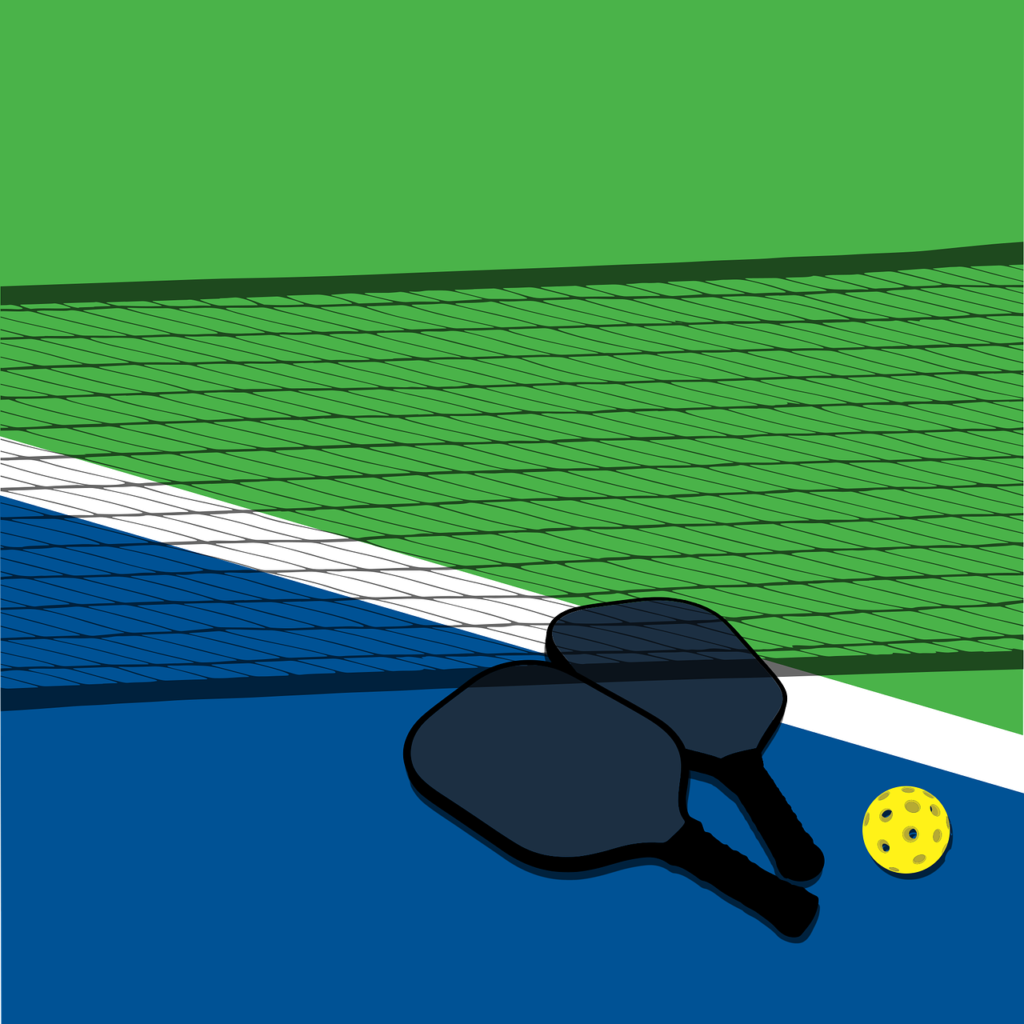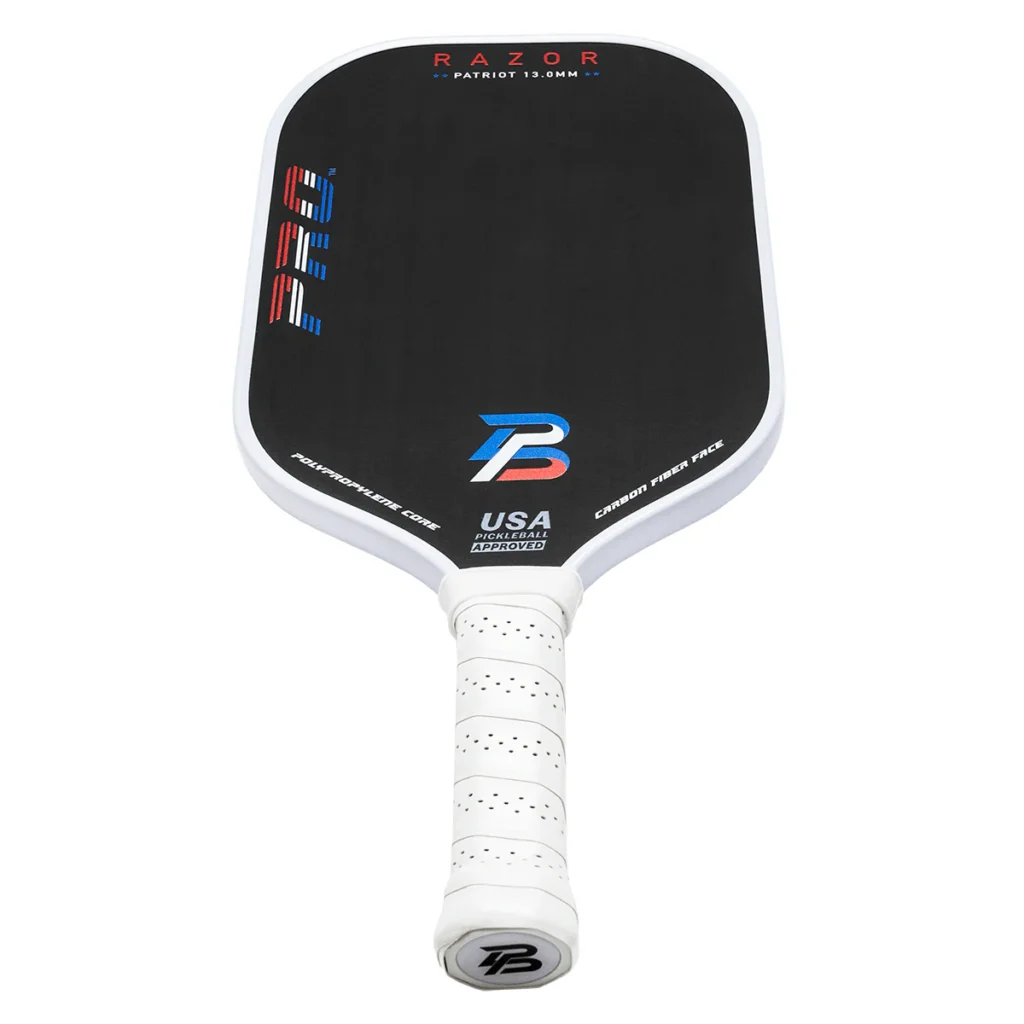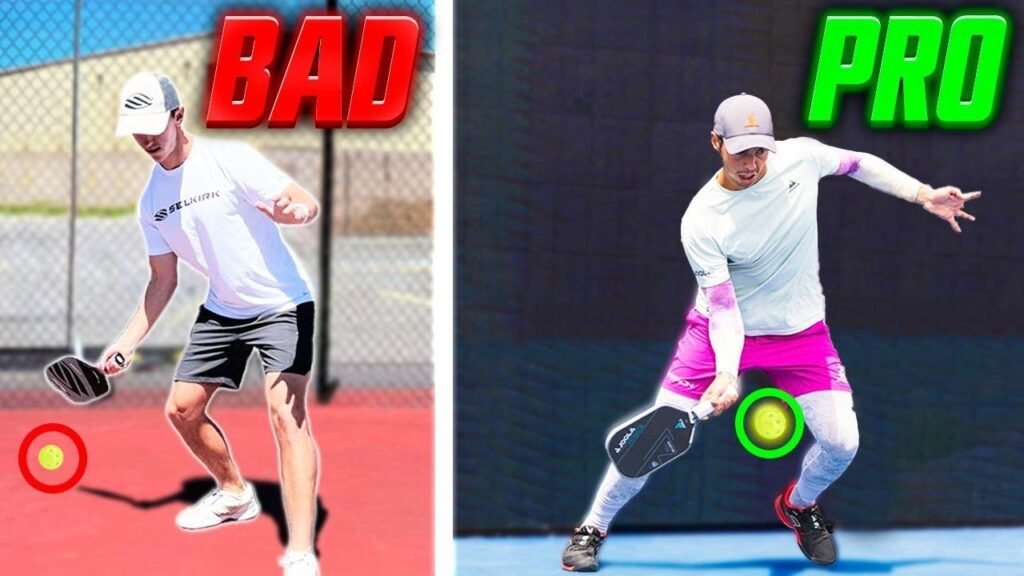In the world of pickleball, the top players seem to have a secret formula for success that sets them apart from the rest of us. In a YouTube video titled “Pickleball Perfection: 3 Game-Changing Tips Revealed”, we are given a glimpse into the strategies and techniques used by the best in the game. From analyzing the precise footwork of players like Ben Johns and Federico Stax to understanding the efficient movements required for a killer return, this video offers valuable insights that can take your pickleball game to the next level. Join us as we delve into the world of pickleball perfection and uncover the tips that could transform your gameplay.
Table of Contents
- Perfecting the Return Game: Tips from the Pros
- Mastering the Forehand Return: Efficiency is Key
- Analyzing the Footwork: Tips for a Flawless Return
- Backhand Returns: Techniques from the Best
- Improving Your Backhand: Footwork and Positioning
- Key Differences between Amateurs and Professionals
- Kitchen Approach: How Pros Optimize their Game
- Amateur Mistakes: How to Avoid Slow Approaches
- Q&A
- In Retrospect
Perfecting the Return Game: Pickleball Tips from the Pros

In the world of pickleball, mastering the return game can make all the difference between amateurs and professionals. The top pros, like Ben Johns and Federo Stax, have honed their return techniques to perfection, setting them apart from the rest of us. One key difference lies in how they hit their returns, not just where they hit them. For example, Ben Johns smoothly transitions from pushing off his left foot to hitting the ball as his left foot comes forward in one fluid motion. This efficient movement allows him to reach the kitchen line quickly and set up for an offensive play.
When it comes to backhand returns, the pros have also fine-tuned their techniques for maximum efficiency. Ben Johns typically uses a two-handed backhand, shuffling his feet to set up for the return and moving forward as he hits the ball. On the other hand, federo Stax opts to step with his right foot outside the ball before moving forward with his left foot. These strategic movements not only help them reach the kitchen line faster but also set them up for a strong offensive position. In comparison, amateur players may struggle with footwork and positioning, leading to slower approach to the kitchen and possible openings for their opponents to capitalize on. By learning from the pros, we can improve our return game and elevate our pickleball skills to the next level.
Mastering the Forehand Return: Efficiency is Key

In the world of pickleball, mastering the forehand return is crucial for success on the court. Efficiency is key when it comes to delivering a strong and accurate return shot. Watching the top pros like Ben Johns and Federico Stax in action, it’s clear that their technique sets them apart from the rest. The way they push off their left foot onto their right foot and seamlessly hit the ball as their left foot comes forward in one fluid motion is truly game-changing. This enables them to get to the kitchen line quickly and take control of the game offensively, something that we amateurs often struggle with.
When it comes to the backhand return, the pros continue to demonstrate their superior technique and efficiency. Watching Ben and Federico in action, it’s evident that their footwork and positioning play a crucial role in their success. Whether using a two-handed backhand or stepping with the right foot first to get outside the ball, their approach allows them to move forward as they hit the ball, making their kitchen approach much smoother. This is a stark contrast to many amateur players who may find themselves out of position and struggling to keep up with the pace of the game. Mastering these game-changing tips in your pickleball play can elevate your skills to new heights and lead to greater success on the court.
Analyzing the Footwork: Tips for a Flawless Return
In pickleball, footwork is crucial for a flawless return. The top Pros like Ben Johns and federo Stax have mastered the art of efficient footwork to quickly get to the kitchen line and take control of the game. When hitting returns to their forehands, they push off their left foot onto their right foot and hit the ball as their left foot is coming forward in one fluid motion. This seamless movement allows them to be in the best position to make their next shot.
On the other hand, many amateur players, like our 4.0 player, struggle with their footwork on returns. They may find themselves lined up in the middle of the court and too far back from the baseline, leading to slow and inefficient movements to get to the ball. By improving their footwork technique and learning from the Pros, amateur players can enhance their game and increase their chances of making a successful return.
Backhand Returns: Techniques from the Best
In the world of pickleball, the top players have mastered a technique that sets them apart from the rest of us when it comes to backhand returns. Take Ben Johns, for example, the number one player in the world, who utilizes a two-handed backhand approach. By shuffling his left foot closer to his right and then stepping forward with his right foot, Ben is able to move fluidly towards the ball as he hits his return. On the other hand, players like Fedeo Stax opt for a different approach, using a similar technique to their forehand returns by stepping with their right foot first before hitting the return with their left foot moving forward. These subtle differences in technique allow them to approach the kitchen line with ease and efficiency.
Now, let’s shift our focus to how amateurs like us approach backhand returns. When faced with a backhand return, players at the 4.0 level may find themselves lined up in the middle of the court and close to the baseline. This positioning forces them to push off their inside foot and awkwardly step across their body in order to reach the ball in time. The extra movement not only slows down their approach to the kitchen line but also leaves them vulnerable to clean winners from their opponents. As we can see, the key to mastering backhand returns lies in adopting the efficient footwork and body positioning demonstrated by the top Pros in the game.
Improving Your Backhand: Footwork and Positioning
There are three key differences that set the top pickleball players apart from the rest of us, and in this video, we’re going to address the first one: how they hit their returns. The pros, like Ben Johns and Federo Stax, have mastered the art of hitting their returns efficiently by pushing off their left foot onto their right and hitting the ball as their left foot moves forward. This fluid motion allows them to get to the kitchen line quickly and take the offensive, something that many of us struggle with.
When it comes to backhand returns, the top players once again showcase their expertise. Ben Johns utilizes a two-handed backhand and positions himself by shuffling his left foot closer to his right before moving forward with his left as he hits the ball. On the other hand, Federo Stax often opts for a forehand return technique, stepping with his right foot to get outside the ball before moving forward with his left. Their strategy of moving forward as they hit the ball makes their approach to the kitchen much smoother and more effective. In contrast, many amateurs find themselves out of position, standing in the middle of the court or too close to the baseline, resulting in slow and inefficient movements that leave them vulnerable to their opponent’s shots.
Key Differences between Amateurs and Professionals
In pickleball, the way top professionals hit their returns sets them apart from amateurs. Ben Johns and Federico Stax, two of the best players in the world, have mastered the art of efficient return shots. When balls are hit with their forehands, they smoothly push off their left foot onto their right foot, hitting the ball as their left foot moves forward in one seamless motion. This fluid technique allows them to quickly get to the kitchen line, gaining the offensive advantage.
When it comes to backhand returns, pros like Ben and Fed exhibit strategic footwork to ensure a strong approach to the net. Whether using a two-handed backhand like Ben or stepping outside the ball with their right foot like Fed, these players move forward as they hit the ball, making their way to the kitchen with ease. In contrast, amateurs often find themselves stuck in the middle of the court, struggling to reach returns due to inefficient footwork. By learning from the pros and implementing these techniques, amateur players can elevate their game and improve their overall performance on the court.
Kitchen Approach: How Pros Optimize Their Game

In pickleball, the top pros have mastered the art of hitting their returns with precision and efficiency. Take Ben Johns, for example, the number one player in the world. When he hits a return, he seamlessly transitions from pushing off his left foot to hitting the ball as his left foot comes forward in one fluid motion. This allows him to quickly move to the kitchen line and take control of the game. In comparison, amateur players like us often take multiple steps to reach the ball, resulting in a slower approach to the kitchen.
When it comes to backhand returns, the pros again showcase their expertise. Ben Johns typically utilizes a two-handed backhand, shuffling his left foot closer to his right before stepping forward with his left foot while hitting the ball. On the other hand, players like Fed use a different technique, stepping with their right foot to get outside of the ball before moving forward with their left foot. This strategic positioning and movement allow them to maintain momentum and seamlessly approach the kitchen line. In contrast, amateurs may find themselves scrambling to reach backhand returns, resulting in slower kitchen approaches and missed opportunities.
Amateur Mistakes: How to Avoid Slow Approaches
In the world of pickleball, perfecting your approach can make all the difference between winning and losing. One key aspect that sets the top Pros apart from amateurs is how they hit their returns. Watching players like Ben Johns and federo Stax, it becomes clear that their technique is flawless. By pushing off their left foot onto their right foot and then hitting the ball as their left foot comes forward, these pros execute their returns in one fluid motion. This efficient movement allows them to quickly get to the kitchen line and take control of the game.
When it comes to backhand returns, the top players again showcase their superior technique. Ben Johns uses a two-handed backhand, shuffling his left foot closer to his right foot before stepping forward with his left as he hits the ball. Fed, on the other hand, rarely uses his backhand for returns, instead opting for a similar technique as his forehand. By stepping with his right foot to get outside the ball and then moving forward with his left, he sets himself up for a successful return. In contrast, amateur players often find themselves out of position, needing to make extra movements to reach the ball on time, resulting in slow approaches to the kitchen.
Q&A
Q: What are some game-changing tips for improving your pickleball game, as discussed in the YouTube video “Pickleball Perfection: 3 Game-Changing Tips Revealed”?
A: The video covers tips on how top pros hit their returns efficiently and effectively, focusing on footwork and technique.
Q: How do the top pros hit their forehand returns in pickleball?
A: The top pros, like Ben Johns and federo Stax, push off their left foot onto their right foot and hit the ball as their left foot is coming forward in one fluid motion.
Q: What is emphasized in the video about backhand returns in pickleball?
A: Ben Johns uses a two-handed backhand and Federo Stax rarely uses his backhand, opting for a similar technique as his forehand return by stepping with his right foot to get outside the ball and moving forward with his left foot as he hits the return.
Q: How does the footwork of amateur players compare to that of the top pros in pickleball?
A: Amateur players often struggle with inefficient footwork and positioning, leading to slower approach to the kitchen line and less effective returns compared to the top pros.
In Retrospect
In conclusion, the top pickleball pros have mastered the art of hitting efficient returns, both forehand and backhand, enabling them to approach the kitchen line with precision and speed. By observing and learning from their techniques, we can improve our own game and strive for pickleball perfection. So next time you’re on the court, remember these game-changing tips and elevate your skills to the next level. Keep practicing, keep playing, and most importantly, have fun out there on the pickleball court! Thank you for watching and stay tuned for more tips and tricks to up your game. See you on the court!


